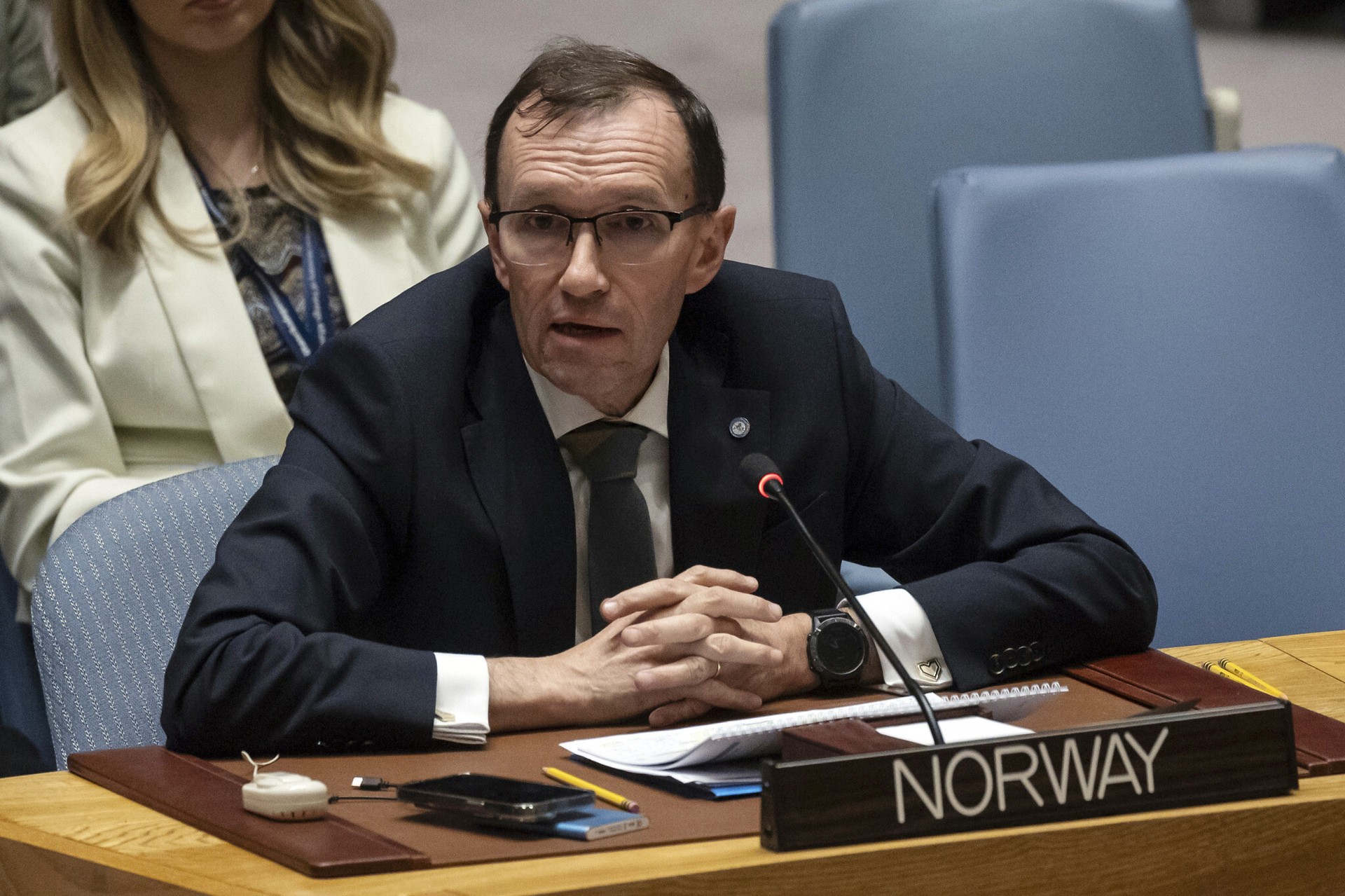
European and Islamic nations have launched a new initiative aimed at bolstering support for an independent Palestinian state and strengthening its institutions.
The effort comes as regional conflicts intensify, particularly in Gaza and Lebanon, and seeks to lay the groundwork for a post-war future, Norway’s Foreign Minister Espen Barth Eide said on Friday.
“There is a growing consensus in the international community from Western countries, Arab countries, and the Global South that we need to establish a Palestinian state – and that state has to be recognized,” Eide told The Associated Press (AP).
Eide highlighted that significant challenges remain, including the security interests of both Israel and the Palestinians, as well as the need for mutual recognition and the normalization of relations after decades of conflict.
Another major issue is the demobilization of Hamas as a military group.
“These are pieces of a bigger puzzle,” Eide said. “And you can’t just come in there with one of these pieces because it only works if all the pieces are laid in place.”
Despite these efforts, Eide acknowledged that Israel’s current government, led by Prime Minister Benjamin Netanyahu, may be unlikely to engage with the initiative. However, he stressed that after decades of stalled negotiations, "a new approach" is necessary to achieve the long-sought goal of a Palestinian state.
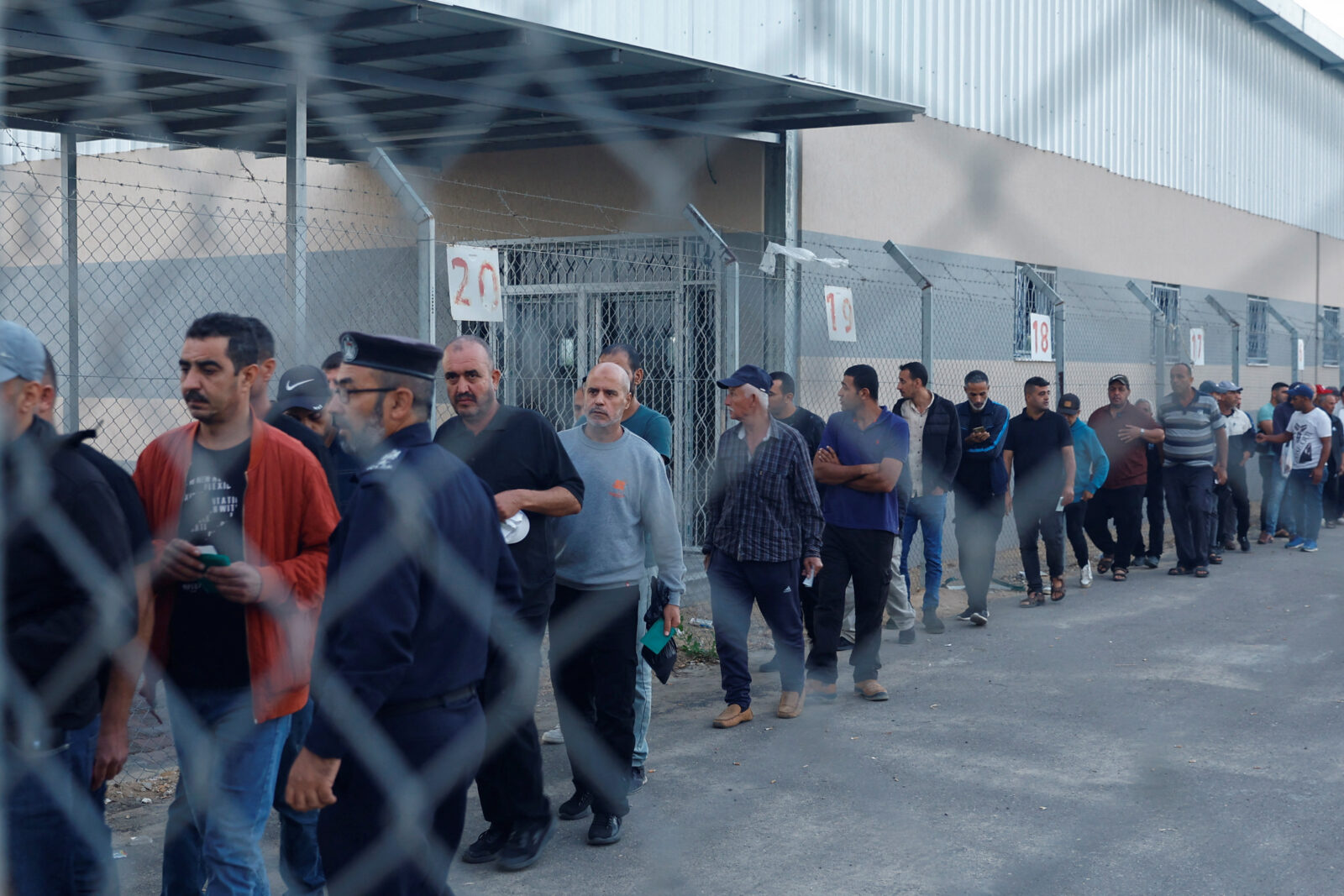 Palestinian workers enter the reopened Erez crossing to Israel, after Israeli ends a ban on workers from Gaza, in Gaza City September 28, 2023. (Reuters Photo)
Palestinian workers enter the reopened Erez crossing to Israel, after Israeli ends a ban on workers from Gaza, in Gaza City September 28, 2023. (Reuters Photo)
To expedite progress, nearly 90 countries participated in a meeting on the sidelines of the U.N. General Assembly’s ongoing session.
The meeting, co-chaired by Eide and Saudi Arabia’s Foreign Minister, launched “The Global Alliance for the Implementation of a Palestinian State and a Two-State Solution.”
“We have to see how we can come out of this deadlock and try to use this deep crisis also as an opportunity to move forward,” Eide told the U.N. Security Council on Friday, speaking on the ongoing conflict in Gaza.
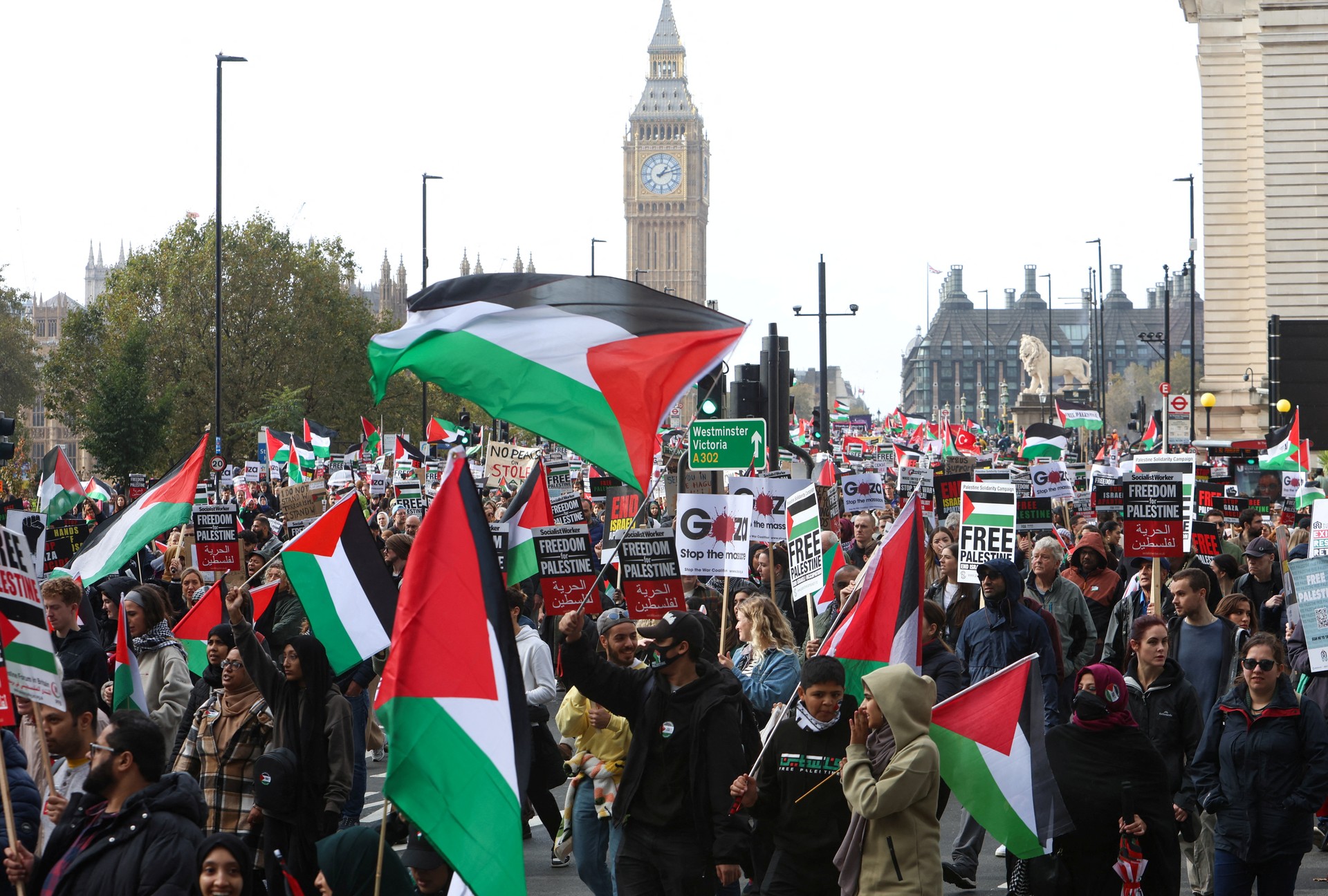 Demonstrators protest in solidarity with Palestinians in Gaza, amid the ongoing conflict between Israel and the Palestinian group Hamas, in London, Britain, October 28, 2023. (Reuters Photo)
Demonstrators protest in solidarity with Palestinians in Gaza, amid the ongoing conflict between Israel and the Palestinian group Hamas, in London, Britain, October 28, 2023. (Reuters Photo)
Norway, a key guarantor of the 1993 Oslo Accords, which created the Palestinian Authority and initiated self-rule in some areas, has been vocal in its continued efforts to secure a final settlement.
Eide pointed out that over 30 years later, Israel's occupation persists, and no final agreement for an independent Palestinian state has been reached.
This stalemate prompted Norway to recognize a Palestinian state in May. To date, 149 out of 193 U.N. member states have recognized Palestine, and Eide urged the remaining nations to follow suit, calling for “universal recognition” and stronger Palestinian institutions to govern both the West Bank and Gaza.
“We want one Palestine, not different Palestines,” Eide stated.
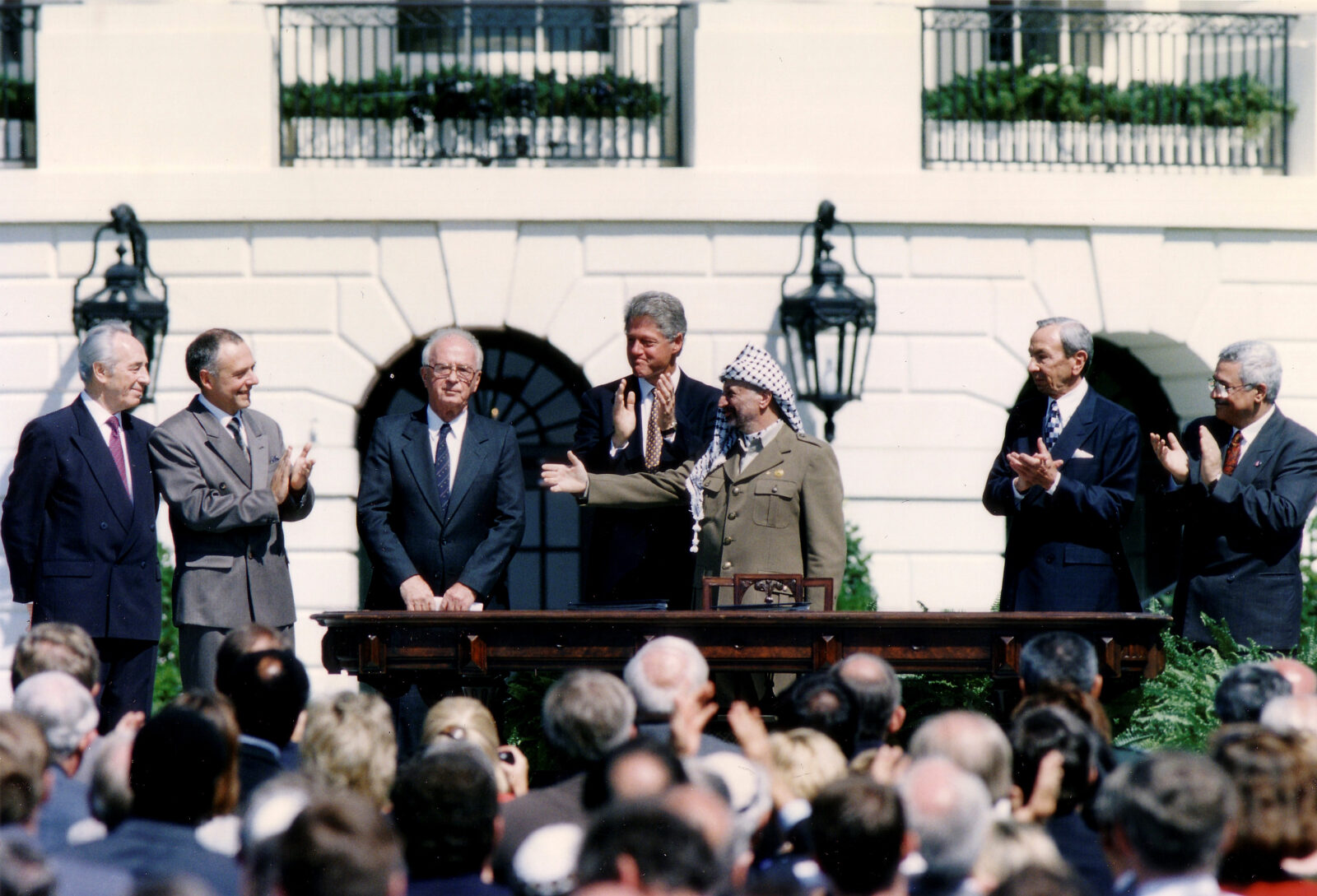 PLO Chairman Yasser Arafat (3rd R) gestures to Israeli Prime Minister Yitzhak Rabin (3rd L), as U.S. President Bill Clinton (C) stands between them, following their handshake after the signing of the Israeli-PLO peace accord, at the White House in Washington, U.S., September 13, 1993. (Reuters/Gary Hershorn)
PLO Chairman Yasser Arafat (3rd R) gestures to Israeli Prime Minister Yitzhak Rabin (3rd L), as U.S. President Bill Clinton (C) stands between them, following their handshake after the signing of the Israeli-PLO peace accord, at the White House in Washington, U.S., September 13, 1993. (Reuters/Gary Hershorn)
Saudi Foreign Minister Prince Faisal bin Farhan Al Saud also spoke at the U.N. Security Council, explaining that the joint Islamic-Arab ministerial committee, Norway, and the European Union launched the initiative. He emphasized the urgency of acting to resolve the longstanding conflict.
EU foreign policy chief Josep Borrell added his support, urging countries to take concrete steps toward establishing "a free Palestine next to a secure Israel." He announced that the alliance’s first meetings would be held in Riyadh, Saudi Arabia, and Brussels.
Borrell also asked critics of the two-state solution: “What is the solution, and can it be implemented?” He emphasized that this initiative is built on the 2002 Arab Peace Initiative, which sought normalized relations with Israel in exchange for a full withdrawal from territories captured in 1967.
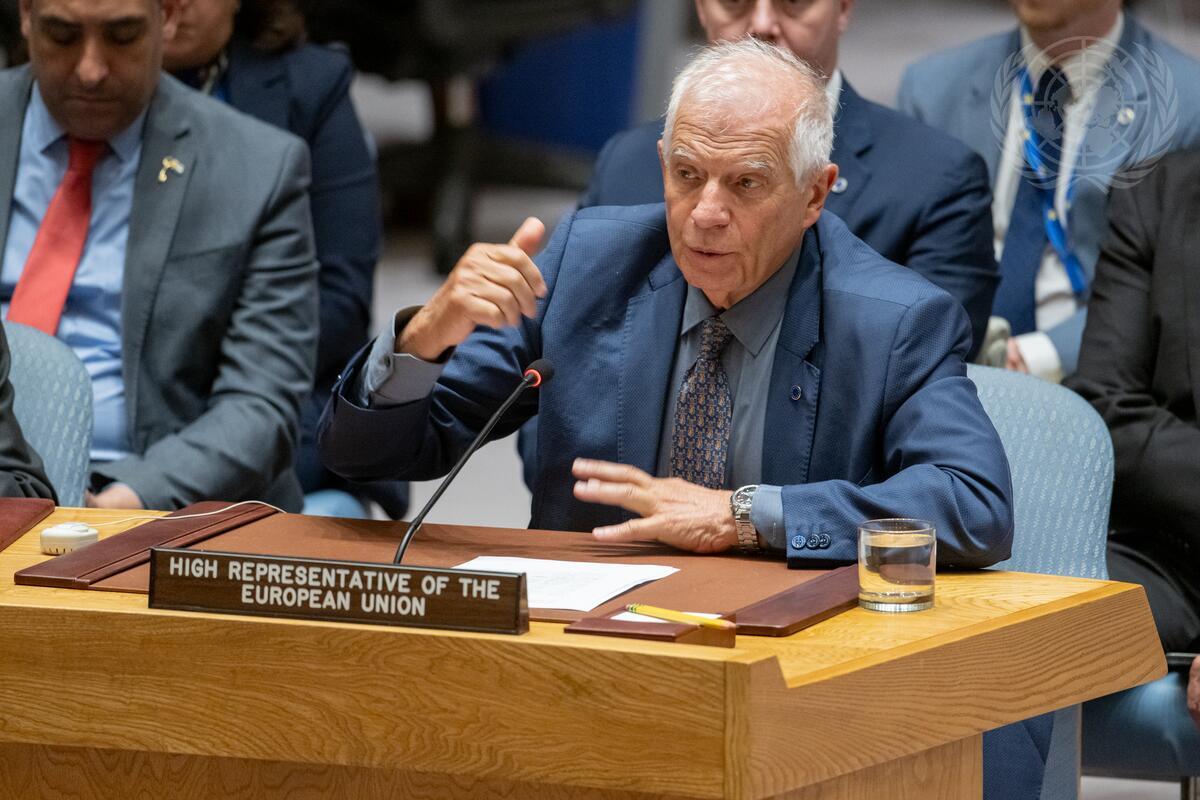 Josep Borrell Fontelles, High Representative of the European Union for Foreign Affairs and Security Policy and Vice President of the European Commission, addresses the Security Council meeting on the situation in the Middle East, including the Palestinian question. (Photo via U.N.)
Josep Borrell Fontelles, High Representative of the European Union for Foreign Affairs and Security Policy and Vice President of the European Commission, addresses the Security Council meeting on the situation in the Middle East, including the Palestinian question. (Photo via U.N.)
Efforts to build Palestinian institutions have been ongoing, but Eide acknowledged the difficulties faced by the Palestinian Authority, citing increasing illegal settlements and settler violence.
Nevertheless, he argued that there is "an embryonic institution" in a place that requires further strengthening.
On Thursday, Eide chaired a meeting of the Ad hoc Liaison Committee, which included contributions from the United States, Canada, the EU and numerous Mideast and European countries.
The committee focuses on building Palestinian institutions and preparing for statehood.
“None of these tools will solve the problem on their own,” Eide said. “But we’re trying to build a body of instruments that will take us forward to a peaceful settlement, and I am convinced it will happen here.”